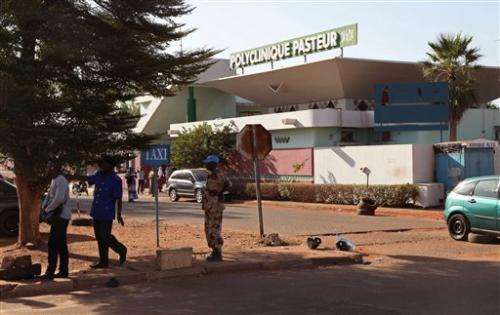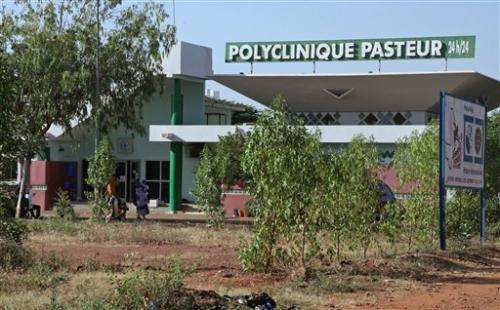Ebola death toll passes 5,000-mark: WHO

More than 5,000 people have died in the Ebola outbreak, which was first identified in Guinea in March, the World Health Organization reported Wednesday, marking another grisly toll in the epidemic.
This is the largest Ebola outbreak ever recorded, with more than 14,000 people sickened, the vast majority in the West African countries of Liberia, Guinea and Sierra Leone.
There are some signs that the rate of new infections may be slowing overall in Guinea and Liberia, but they are surging in Sierra Leone, the health agency said Wednesday, and there are still areas of Liberia and Guinea where transmission remains high. While the response to Ebola is ramping up, it is still insufficient: In Sierra Leone, for instance, less than 40 percent of cases are in isolation, according to WHO estimates.
Worryingly, the virus has continued to pop up in new places, both within the most affected countries and outside their borders. The most recent example is three deaths believed to be linked to a new Ebola cluster that Malian authorities reported Wednesday. It is an alarming setback as the country tries to limit the epidemic ravaging other West African countries.
A nurse working at a clinic in the Malian capital died Tuesday, and tests later showed she had Ebola, Communications Minister Mahamadou Camara said Wednesday. Two other people are also believed to have died of Ebola, though no tests were ever done on them to confirm the disease: an imam, whom the nurse treated at the Bamako clinic, and a friend who came to visit the man there.
Health officials began monitoring dozens of patients, hospital employees and family members—including U.N. peacekeepers who were being treated at the clinic. They were also searching this capital city of about 2 million for those who helped prepare the body of one of the victims for burial before it was known that the corpse might be highly contagious.

At least 75 people are under quarantine following the new cases in Bamako, including patients and staff from the hospital, said Ousmane Doumbia, secretary-general for the Malian health ministry. Several of the patients under quarantine are troops serving in the country's U.N. peacekeeping force who were being treated for wounds at the clinic, the force said in a statement.
The announcement of the new cases came just a day after Malian health authorities said there had been no other reported cases—let alone deaths—since a 2-year-old girl who had traveled to Mali from Guinea succumbed to the virus in late October.
The imam who lived in a small community near Guinea's border with Mali came to the Clinique Pasteur on Oct. 25 late at night. The man, 70, was so ill he could not speak or give information about his symptoms, according to the head of the clinic.
"His family did not give us all the information that would have led us to suspect Ebola," Dramane Maiga told The Associated Press.
One of his wives, a son and a brother are all being treated at an Ebola clinic in Gueckedou, Guinea. Two other family members also have died from an "undiagnosed disease" as well, WHO said.
The man was being treated for kidney failure at the Bamako hospital, officials said. The condition can result from a number of kidney diseases, but is also a symptom of late-stage Ebola, when vital organs begin to shut down.
"Because of his religious status as a Grand Imam, his body was transported to a mosque in Bamako for a ritual washing ceremony," the World Health Organization said Wednesday. "The body was then returned to the native village of Kouremale for formal funeral and burial ceremonies. Although these events are still under investigation, WHO staff assume that many mourners attended the ceremonies."
The nurse, meanwhile, was hospitalized on Saturday though hospital officials did not alert the health ministry until Monday morning. Health officials did not arrive at the clinic until 6 p.m. and by the time the test results came back on Tuesday, the 25-year-old nurse was already dead, said Maiga.
The new Ebola cases come just as public health officials started to think Mali had avoided the worst. The cases are stark reminders that the disease is hard to track and the entire West Africa region remains vulnerable as long as there are cases anywhere.
© 2014 AFP














